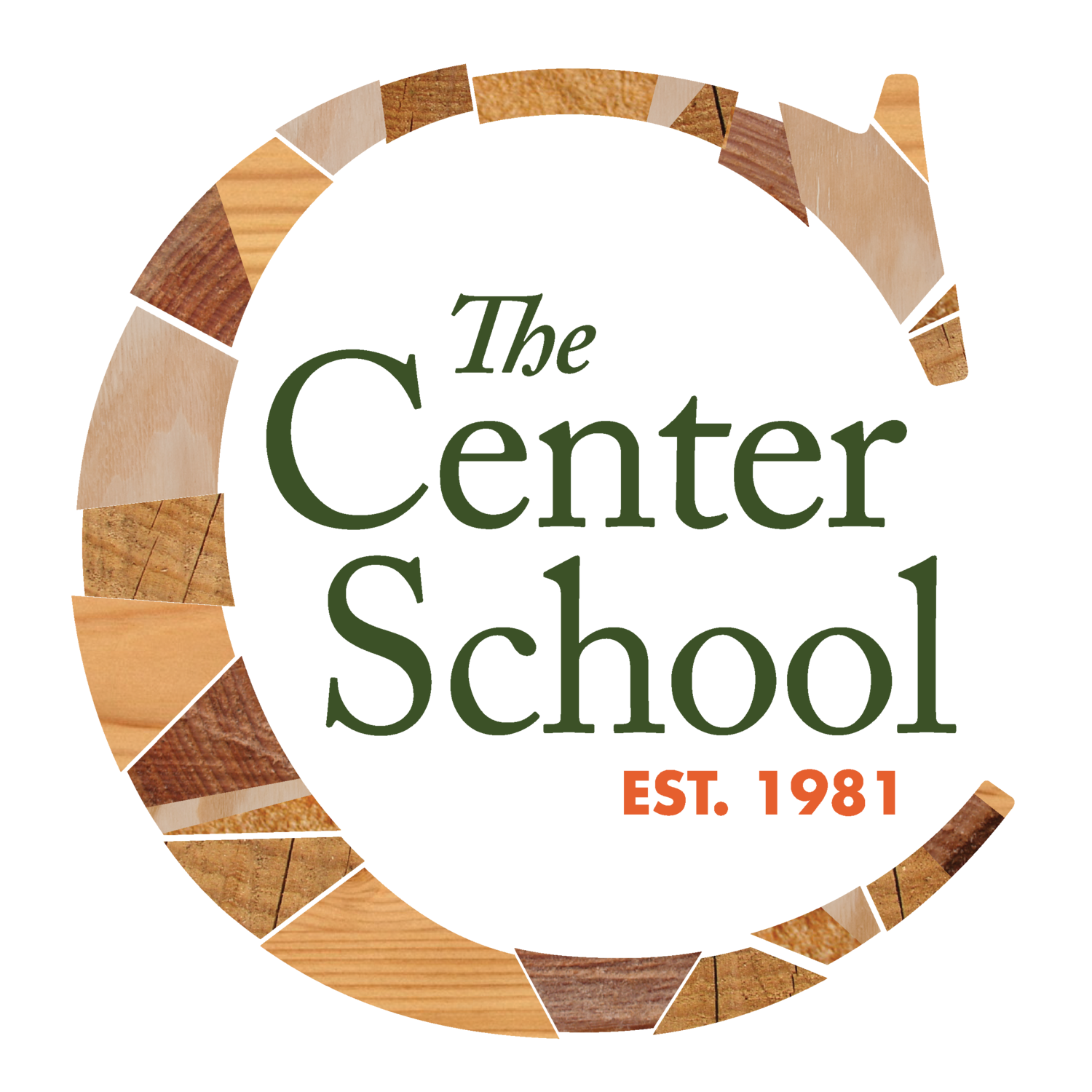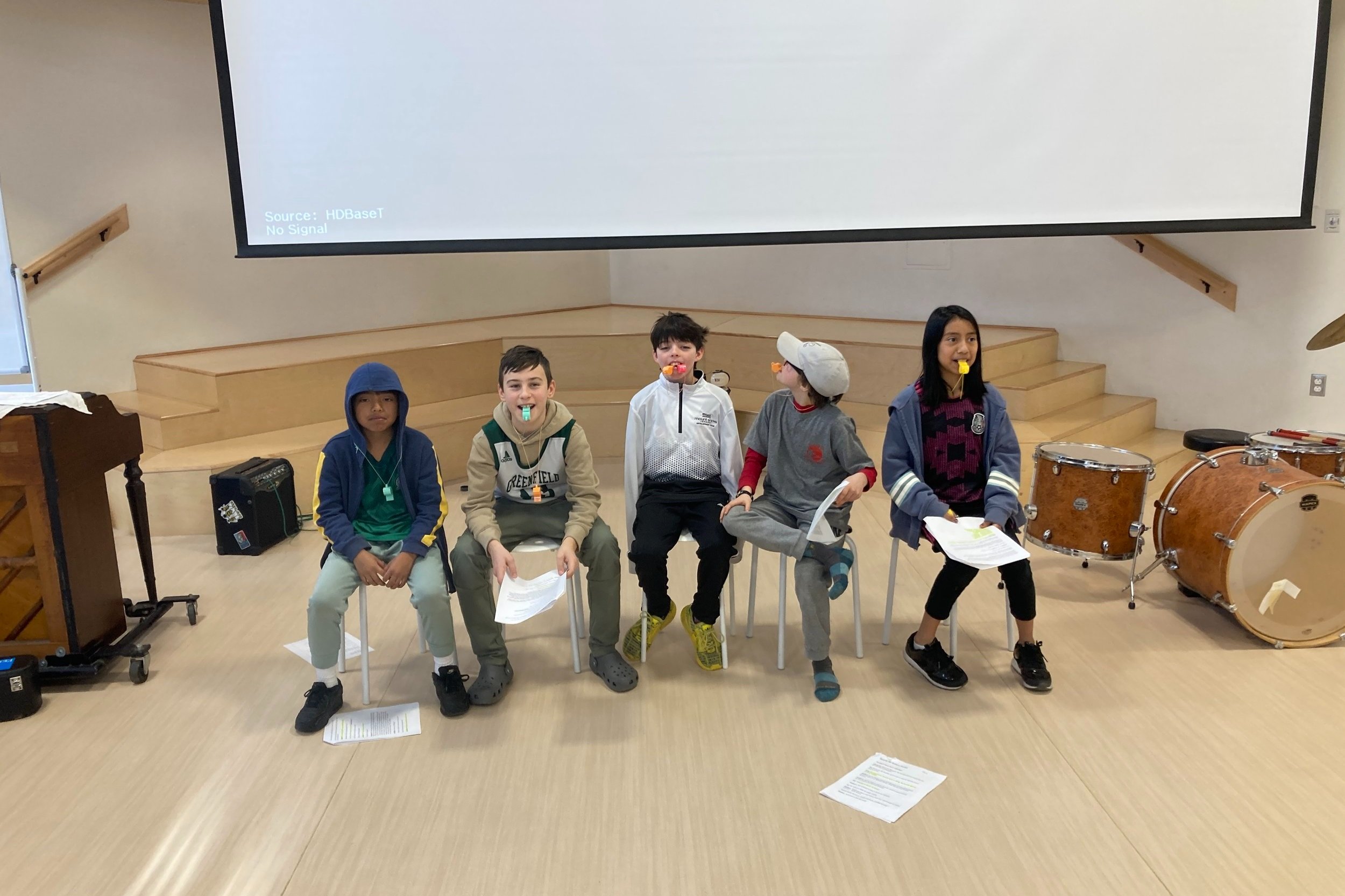
Leading All Schools in The Middles (4th/5th)
It’s Middles-led All School season and the excitement is palpable in our classroom. Each week, four or five students meet with one of the teachers to plan, prepare, and then lead the All School.
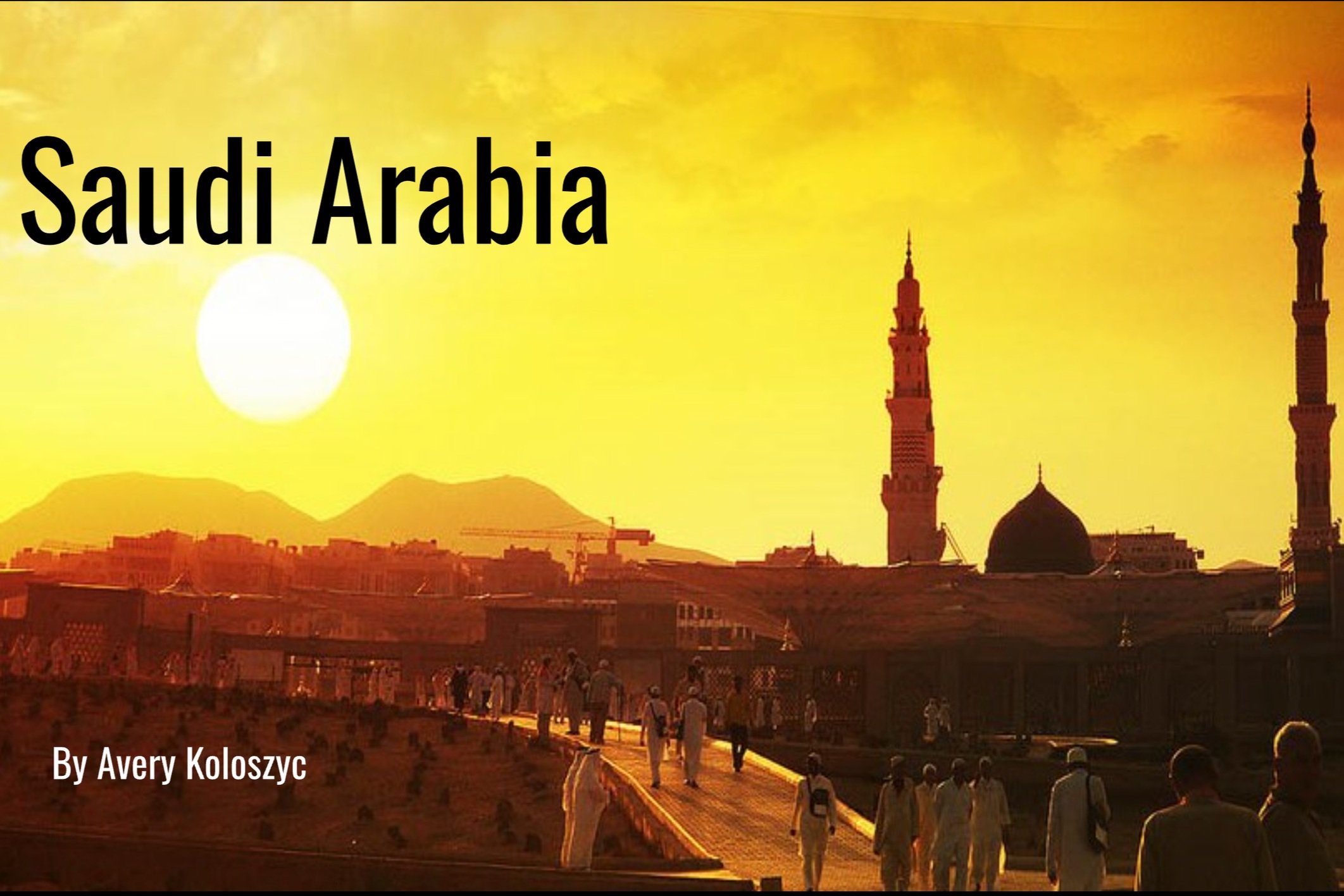
The Sixth Grade Country Study: A 20-Year Focus on Social Justice and Activism
Every year the Sixth Grade Uppers embark into the depths of world geography, world culture, and a general study of cartography. It’s an exciting unit for the kids, they look forward to it every year, and we always hit the ground running with enthusiasm and joy for getting to know the map of the world, choosing a continent to study, and eventually choosing a country to study.

Discussing Skin and Racism in The Lumber Primes (K/1)
Before launching into our discussion about skin, we first checked in with the Lumber Primes to see what the children remembered about gene expression from our previous discussions:

The Building Blocks of Social Justice Teaching in The Dancing Primes (Toddlers)
We are working on teaching building blocks for social justice learning in the Dancing Primes. We are working on identifying and naming colors as well as observing the colors we see in each other and in books.

Thinking About Skin With the Forest Primes (K/1)

Spring Science Investigations in 7th Grade
The 7th graders are bouncing along in science this winter exploring the properties of springs. The first part of this exploration is to find out what a spring constant is.

Making a Family Book in the Puzzle Primes (3 year-olds)
In the Puzzle Primes classroom we have been working on our Family Book. Our Family book consists of pictures and descriptions of the pictures narrated by the Puzzle Primes. At the beginning of the school year the Puzzle Primes Teachers ask families to send in photos and over the course of the school year we assemble a book so that we can get to know each other better.

Community Service in the Mups (2nd/3rd)
In the weeks leading up to winter break, the Mups embarked on a community service project centered around compassion, empathy and active contribution to our own local community. The journey began with discussions about wants versus needs, with the class delving into impactful books such as Tight Times by Barbara Shook Hazen, Those Shoes by Maribeth Boelts, and Fly Away Home by Eve Bunting.

What Are Rights? In The Lumber Primes (K/1)
Last week a student brought in a book to share with the class called Learning My Rights with Mousewoman, written by Indigenous author/illustrator Morgan Asoyuf of the Ts'msyen nation in British Columbia.

Waste Systems Theme in The Mups (2nd/3rd)
In the Mups, we have a class called “Theme”. This class typically oscillates between more science-focused or social studies-focused units. Over the last eight weeks, the second and third graders have been immersed in our latest thematic unit: “Waste Systems”.
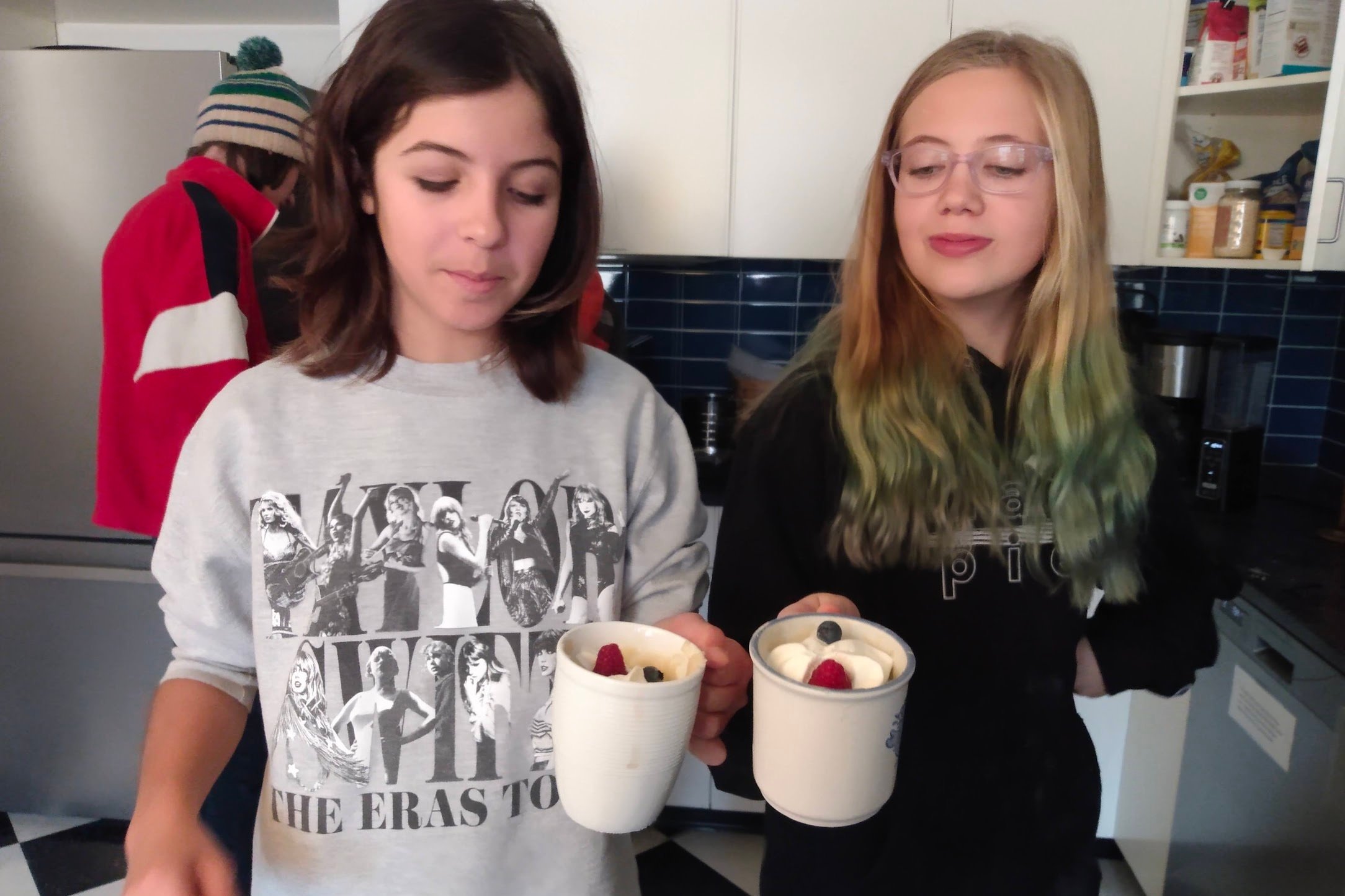
Saying Yes! In The Uppers (6th-8th)
As anyone who has ever taken an improv class knows, one of the cardinal rules is to “say yes!” Say yes to your scene partner, say yes to any wacky idea that the audience suggests, say yes to how the scene unfolds.
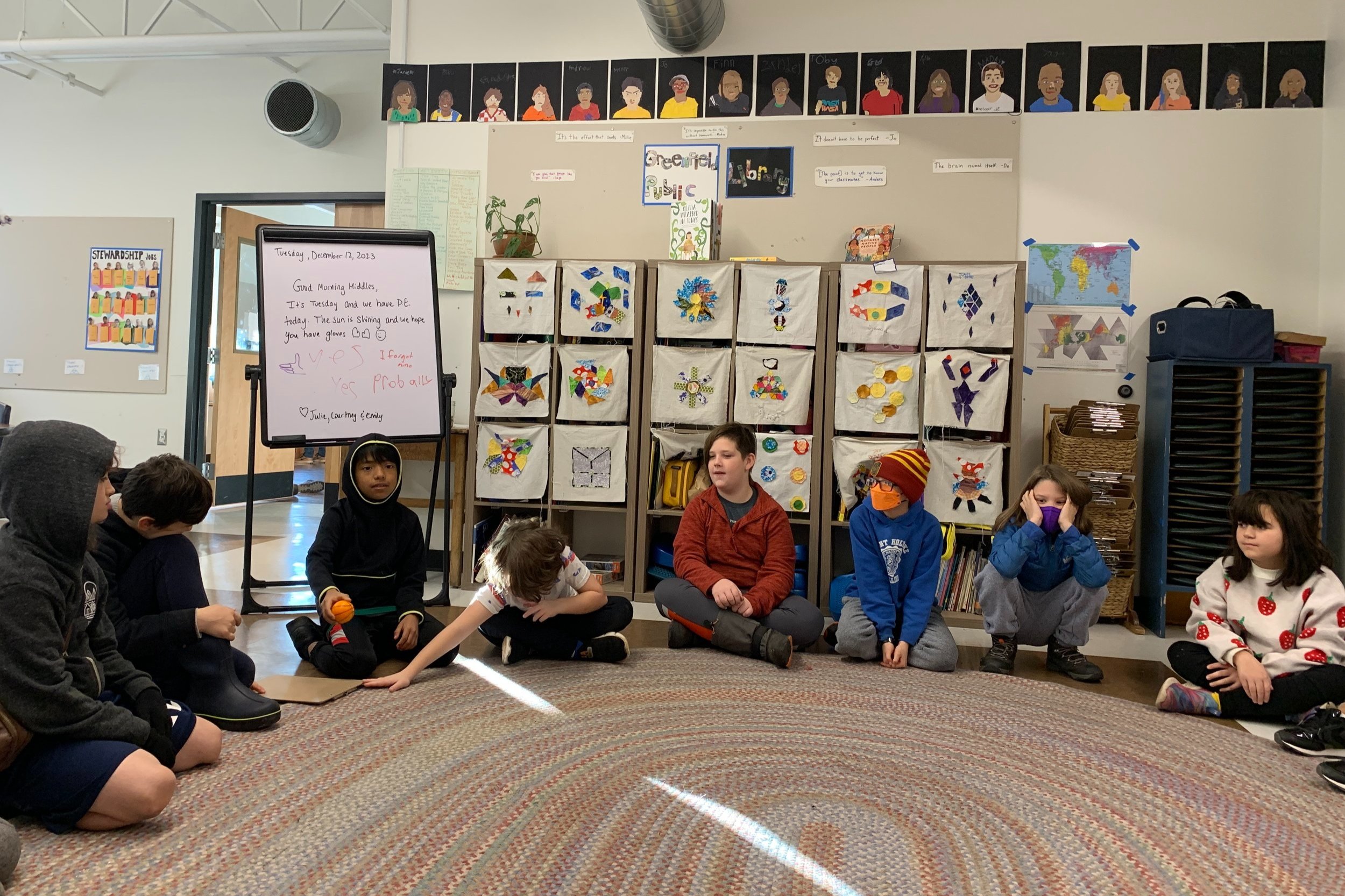
President: Leading the Middles (4th/5th) for a Week
“The next president is … On a Friday afternoon, you’ll hear the sound of drum rolling, followed by the ceremonious announcement of the Middle’s next president. It’s a big deal.

Wondering About Woolly Bears in the Preschool (2-4 yr. olds)
This fall the campus was teeming with Wooly Bear Caterpillars! Maybe they are having a boom year, or maybe we just haven’t noticed them until now. Early in the fall, preschoolers found hundreds of white eggs on the playground and in our woods spot. At first we thought they were slug eggs (we have seen a lot of slugs too).

Enhancing Learning: Engaging Uppers in Course Reflection (6th-8th)
As educators strive to create enriching learning environments, it becomes crucial to gather insights directly from the students themselves. The idea to offer Wondering in the Woods as an elective for 6th-8th graders came from my observations of the students.

Basics of Chemistry in the Uppers (8th Grade)
This fall the 8th grade has been studying the basics of chemistry. We learn about molecules, phase change, atoms and more. our most recent focus is on how different substances can have different densities because of the arrangement of their atoms, and the composition of the atoms themselves.

Mapping Hammock Valley in the Forest Primes (K/1)
I recently came across an article outlining the difference between academic and intellectual goals in the early years. The article reminds us that, “Academic goals are those concerned with acquiring small discrete bits of information, usually related to preliteracy skills and practiced in drill, worksheets, and other kinds of exercises designed to prepare the children for later literacy and numeracy learning. “

Foundational Play Theories in the Dancing Primes (Toddler)
The preschool teachers have been looking more deeply at the foundational play theories that guide our teaching, including the development of play (such as solitary, parallel, associative, and cooperative play) and common early childhood play schemes (such as Positioning, Enveloping, Connecting, and Transporting) in order to help shape our observations and how we provide learning opportunities to each student.

Emergent Math in the Lumber Primes (K/1)

Conversations About Power and Contemporary Indigenous Youth in the Lumber Primes (K/1)

Discussing Unconscious Bias in the Lumber Primes (K/1)
As teachers here at the Center School, we are privileged to be able to teach explicitly about racism and bias without the fear of censure or backlash (which is not the experience of many educators around the country). We also have the responsibility to center this teaching in our work with children.
